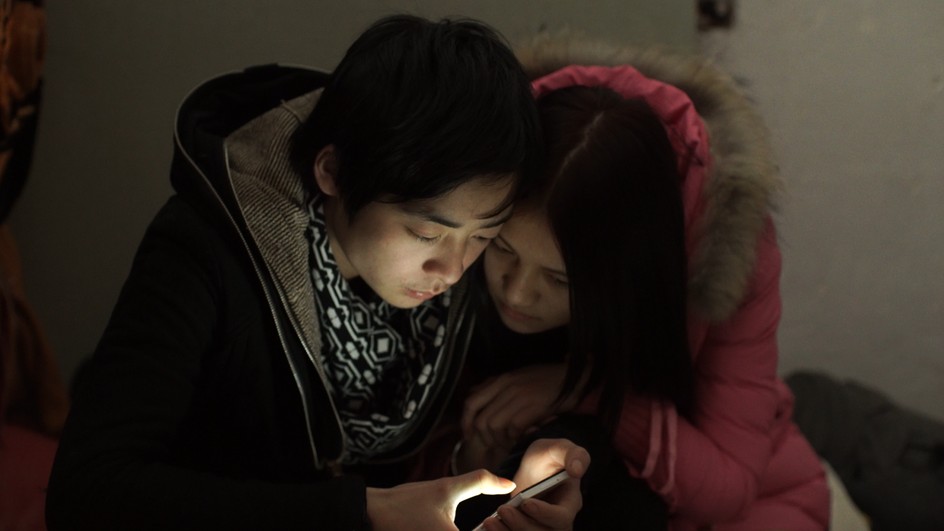
Visiting artist professor
2018 - 2019
Wang Bing
Born in 1967 in Xi’an (China)
Director, screenwriter, cinemathographer, producer. Born in Xi'an, Shaanxi Province, China, in 1967, Wang Bing studied photography at the Lu Xun Academy of Fine Art and cinematography at Beijing Film Academy. He began his career as an independent filmmaker in 1999.
Discovered in 2003, West of Tracks (Tiexi Qu / 铁西区, an enormous documentary work of more than nine hours long, has garnered great success internationally. In addition to his feature documentaries (Three Sisters / San Zimei / 三姊妹, 'Til Madness / Fengai/ 疯爱), he is also active in video installation (Crude Oil / Yuanyou / 原油, a fourteen hour film), fiction film (Brutality Factory / Baoli Gongchang / 暴力工厂, The Ditch / Jiabiangou / 夹边沟), and photography.
At the turn of this century, Wang Bing entered film history when he boarded a freight train with a small rented DV camera and started filming the snowy landscapes of the industrial district of Tiexi in northeastern China. For the following two years, the former photography and art student documented the decline of the district's state-owned factories, tirelessly following the remaining workers in the corridors and expanses of the complexes. Out of the three hundred hours of footage, he created the monumental West of the Tracks (2002): a threepart, nine-hour document of China's transition from state-run to free market economy, and the ensuing desolation of the working class that makes way for an expansion of cheap and precarious labour. From then on out, Wang Bing has continued to chronicle the everyday lives of those who find themselves in the margins of society amidst the vast and rapidly changing landscapes of 21st century China, unveiling what all too often remains invisible under the guise of its "growth miracle" and its willful cancellation of historical memory.
Driven by an unceasing desire to film and to discover, Wang Bing never ceases to explore new places and situations, allowing himself to be led by chance encounters and the epiphany of the unexpected. From the Tiexi district, he moved his centre of activity towards the northwestern regions of China. In the Gobi Desert, he worked for several years in secret on The Ditch (2010), his only fiction feature to date, which recounts the struggles to survive in Jiabiangou, one of the labour camps that were in use during Mao Zedong's Anti-Rightist Movement in the years from 1957 to 1961. More southwest, in the province of Yunnan, he documented the lives of a broken, impoverished farmer's family in a small mountain village in _Three Sisters _(2012) and the inmates of a decrepit mental hospital in 'Til Madness Do Us Part (2013), before following refugee families fleeing the ongoing civil war in Myanmar in Ta'ang (2016) and travelling with migrant garment workers to the southeastern city of Huzhou in Bitter Money (2016). Within this internal geography, long-term projects are alternated with more modest but no less powerful ones. During the production of The Ditch, for example, Wang Bing recorded in one single take He Fengming's startling testimony of the persecutions that she and her family endured throughout the Anti-Rightist Campaign and the Cultural Revolution. While filming Three Sisters, he met two adolescent boys whose daily experience of ennui and repetition in a cramped factory-owned hut he captured in a handful of fixed long shots. And in the course of documenting Huzhou's urban world of sleepless sweatshops and labourers, Wang Bing spent a week along the desolate shores of the Yangtze River in order to film the last days of Mrs. Fang before she passed away.
From the brutal conditions of modern-day slavery to the barren vestiges of disappearing histories, from youngsters wasting their lives to elderly in the face of death, from the industrious to the recumbent, the striking oppositions and reversals in Wang Bing's work are also accompanied by a common perseverance: a determination to extricate from the core of exhaustion the ultimate fragments of the possible. Carefully navigating his camera through the encountered spaces, respectfully juggling the balance between distance and proximity, he patiently searches to capture the actuality and capacity of people who could be identified as seeming to experience little more than "bare life." Instead of enclosing those ignored by the radar of History in a confined framework that supposedly befits their miniscule lives, he chooses to give them time to exist, opening up their lifeworld in order to affirm how their bodies, voices and gestures, too, have a story to tell.
Artist in focus: Wang Bing, Courtisane Festival 2018

